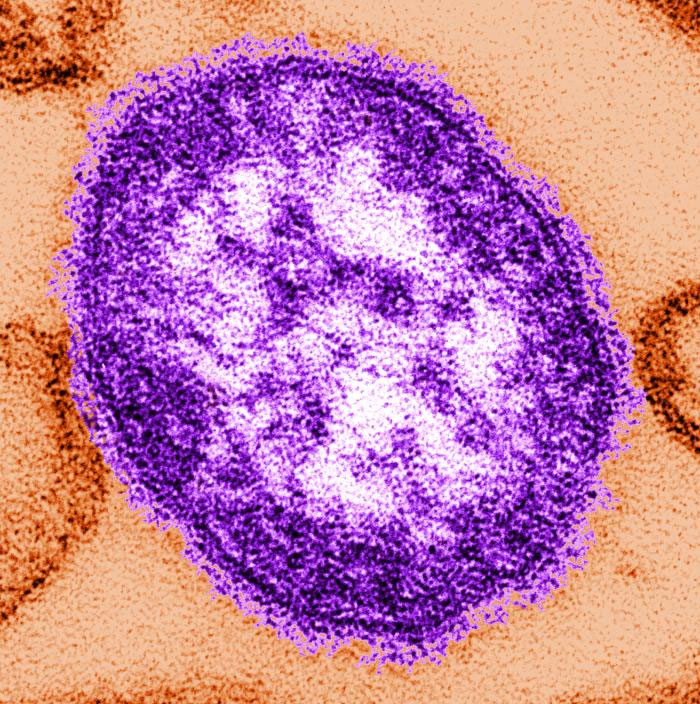More Measles Outbreaks 'Will Undoubtedly Occur,' Experts Warn

More measles outbreaks are sure to occur in the United States because of people refusing vaccinations, researchers say.
So far this year, 170 people in 17 states have been sickened with measles, and most of these cases are part of a large measles outbreak that started in Disneyland at the end of December, according to the Centers for Disease Control and Prevention.
The outbreak captured attention in part because it has sickened infants who were too young to be vaccinated, as well as children who aren't able to receive the vaccine for medical reasons, Dr. Neal Halsey and Dr. Daniel Salmon, of the Johns Hopkins Bloomberg School of Public Health, wrote in an editorial published today (March 9) in the journal Annals of Internal Medicine. Last year, there were 23 outbreaks of measles in the U.S. (most outbreaks are smaller than the Disneyland outbreak), including a total of nearly 650 cases of the disease, they said.
Although measles is considered to be eradicated in the United States (which means the disease is no longer constantly present there), outbreaks do occur when unvaccinated people travel overseas and bring the disease back to the U.S. Moreover, the increase in recent years in the number of people who refuse to let their children get vaccinated have left some people susceptible to the disease, the researchers said.
"More outbreaks owing to vaccine refusal will undoubtedly occur because of sufficient numbers of susceptible individuals in many areas," Halsey and Salmon said in their paper. [Measles Outbreak, Measles Vaccine: Top Questions Answered]
Because measles has been mostly absent from the U.S. for many years, people may not fully understand how severe the disease can be, they said. But measles can cause dangerous complications, including pneumonia and brain inflammation, and about one-quarter of children who get the disease need to be hospitalized.
Adults can be severely affected as well — in fact, deaths rates from measles are higher among adults ages 30 and older than among children younger than age 5, Halsey and Salmon said.
Sign up for the Live Science daily newsletter now
Get the world’s most fascinating discoveries delivered straight to your inbox.
More needs to be done to prevent outbreaks and to protect children who are too young to receive the vaccine or who cannot be vaccinated because of a medical condition, they noted. "Parents should be able to take all children to Disneyland and other public places without the fear of measles exposure," Halsey and Salmon said.
To help boost measles protection in the community, doctors who care for young adults should review their patients' vaccination records to ensure they are vaccinated, the researchers said. Doctors should also confirm vaccinations in people who work in settings where they are likely to be exposed to large numbers of children or international travelers, such as teachers or theme-park staff, Halsey and Salmon added.
"Most adults do not know their detailed vaccination history or have access to their pediatric medical records. Verbal reassurance that 'I had all my shots' is insufficient," they said.
If doctors can't confirm, via a person's records, that he or she has been vaccinated, they can provide a dose of the vaccine. Patients can also have their blood tested for immunity, but this takes time and requires multiple visits to the doctor, they said.
Additional studies of vaccine safety should also be a priority, to address any public concern about vaccinations.
"Maintaining public trust in immunization and our immunization safety system is essential in helping parents to understand the potential adverse consequences of failure to vaccinate and that processes are in place to ensure that their children receive the safest vaccines possible," they wrote.
Follow Rachael Rettner @RachaelRettner. Follow Live Science @livescience, Facebook & Google+. Original article on Live Science.

Rachael is a Live Science contributor, and was a former channel editor and senior writer for Live Science between 2010 and 2022. She has a master's degree in journalism from New York University's Science, Health and Environmental Reporting Program. She also holds a B.S. in molecular biology and an M.S. in biology from the University of California, San Diego. Her work has appeared in Scienceline, The Washington Post and Scientific American.
Measles has long-term health consequences for kids. Vaccines can prevent all of them.
100% fatal brain disease strikes 3 people in Oregon









